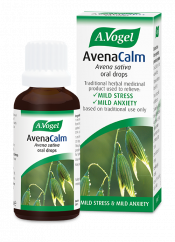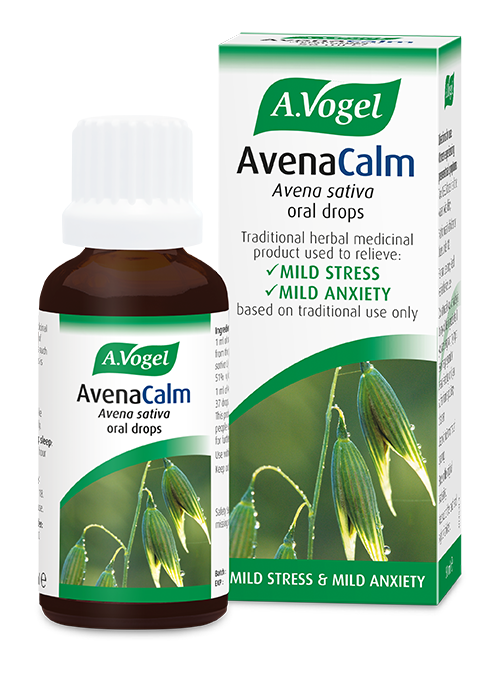Suffering from anxiety?
Answer our quick and easy 11 question test to see if you are suffering from anxiety.
Take the testMuscle and joint pain can be caused by a myriad of issues, but could our emotions also play a role? Could anxiety or stress be exacerbating or even causing joint pain? Today we take a look at the relationship between our mood and joint pain, discussing 6 ways that anxiety can impact our joints and what you can do to reduce symptoms.
Although muscle and joint pain are very common, these are not issues that you would necessarily associate with stress and anxiety. However, as I shall explore below, the two are intricately linked for a number of reasons. Anxiety can, for example:
Here, I shall explore these six points in more detail and talk about what you can do to ease your symptoms.

Uneasy emotions, such as stress or anxiety, have long been linked with increased levels of inflammation. Now, in small amounts, inflammation is actually a good thing for your body, acting as part of your natural immune response, helping to heal wounds and expel infections.
However, as is common in cases of chronic stress, if your body is being persistently assaulted by waves of pro-inflammatory chemicals, it can have an impact on your joints. It can cause fluid to build up, thus leading to swelling and reduced mobility; but, it's also worth considering that studies have linked stress with an increased risk of developing an autoimmune disease.1
Conditions such as rheumatoid arthritis are considered to be an inflammatory autoimmune disease – this means that our own immune system starts to attack healthy areas of our body, such as the thin layer of cells that protect our joints, the synovium.
My top tip for reducing inflammation
Anxiety might act as a trigger for inflammation but there are a range of factors that can exacerbate this problem. Everything, from our diet to our daily habits, have the potential to make inflammation worse, which is why I'd suggest examining these areas closely. Look at reducing your intake of pro-inflammatory sugary, fatty foods and swap them with anti-inflammatory alternatives.
You could also try investing in a natural anti-inflammatory remedy like Atrosan. Atrosan contains extracts of Devils Claw, a herb that has been traditionally used to ease pain. In addition to being anti-inflammatory, Devil's claw is thought to possess analgesic and antispasmodic qualities.

Tension and anxiety often go hand-in-hand – if you're feeling anxious then your muscles will start to become tense, thus leading to those familiar aches and pains. This isn't the only avenue by which anxiety can affect your muscles and joints, though - anxiety can also have an impact on your posture.
You might find that, if you're feeling anxious, you start to slump more in your seat or you sit in your seat in different positions. This can, over time, lead to back pain and other complications. Interestingly, though, there is some evidence out there to suggest that good posture may actually help to improve your mental wellbeing!
My top tip for reducing muscle tension
When it comes to muscle tension, it's great to try low-impact physical activities to ease any aches or discomfort. This could be doing a few deep stretches at your desk or participating in a class like tai-chi or yoga. Not only will this help to relieve stiffness and tension, these types of exercise often promote deep breathing techniques that can help to reduce feelings of stress or anxiety, relaxing your nervous system and easing muscle tension in this way.
If you want to learn more about posture and back pain, I highly recommend reading our Muscle and Joints Advisor Earle's blog, 'Ease back pain by changing your posture'.

When it comes to your muscles and joints, nutrients such as vitamin D, calcium and magnesium are extremely important. Deficiencies in any of these can lead to joint problems; but, unfortunately, in times of stress, your absorption of certain nutrients can be inhibited.
This is because, in times of stress, your stores of these nutrients can be redirected away from your bones to other areas of your body, such as your heart and lungs. This means your bones and joints won't be getting the nutrients they need to thrive. Plus, to complicate this picture, we must also consider cortisol.
Released as part of your body's initial stress reflexes, cortisol helps to dilate your blood vessels and promotes feelings of alertness and wakefulness; however, too much cortisol can also block your absorption of calcium and negatively affect the density of your bones. This can, understandably, make your joints more prone to aches and pains.
Check out my video for information on why we need may need a nutrient boost when stressed, and how you can give your body just this!

Did you know that emotions like stress and anxiety have been linked to increased levels of pain perception? Several small studies have found that those who suffer from chronic pain also display higher blood levels of cortisol, a steroid stress hormone.2
Of course, it could be argued here that chronic pain could be causing the stress, not the reverse; however, another study conducted at the Tel Aviv University in Israel found that stress was capable of intensifying feelings of pain.
The trial, which involved a group of healthy young men, examined the participants' pain management systems before and after the introduction of stress. They found that, while stress did not impact pain thresholds or tolerances, it did significantly increase the intensity of pain felt by the subjects.3
So, what does this mean for our muscles and joints? Well, if you have any pre-existing aches or pains, or suffer from a condition like arthritis, it means that stress or anxiety could exacerbate these, making them feel worse and intensifying any underlying symptoms that you had previously successfully managed.
My top tip for easing pain
You might feel that you have any pre-existing muscle or joint pain complaints under control and then stress or anxiety come along and things rapidly decline. However, since anxiety and stress are at the root of your new and intense symptoms, it makes sense that treating this problem first may help to ease your pain.
You could start by taking a look at my blog, 'Your top 10 stress-busting tips' which contains a whole host of recommendations to help lower your stress levels, including dietary tips and lifestyle advice. You could also try our natural stress remedy AvenaCalm, which is prepared from the oatflower herb and can gently help to relax your nervous system.

"This product has changed my life! I have suffered from severe anxiety for all of my life."


One way that anxiety can indirectly affect your joints is by influencing your eating habits. When we're feeling anxious, it's not unheard of for us to turn to food as a source of comfort. We crave sugary, salty snacks because, over the years, we've been conditioned to perceive them as a 'reward' and, when we eat them, it can temporarily trigger the release of happy hormones.
However, not only can these types of snacks encourage inflammation, but they can also add to your waistline. This is a problem as extra weight can increase pressure on the joints. According to Arthritis Research UK, those who are obese are four times more likely to develop osteoarthritis in their knees, a worrying statistic.4
My top tip for managing unhealthy food cravings
Comfort eating can be a difficult habit to break if you're feeling anxious or stressed; but, nevertheless, it is one you should do your best to manage. You could try to achieve this by instead focusing on foods that can help to reduce anxiety or by addressing the underlying cause of your cravings. In my blog, '7 suggestions for changing stressful eating habits', I go into a little bit more detail about how to counter comfort eating, so, if this is an issue that affects you, you may find this information helpful.

If you're feeling anxious then, over time, this emotion can drag your mood down and you may start to exhibit symptoms of low mood: you may become apathetic to activities you previously enjoyed; you might find you isolate yourself from social groups and you may feel more fatigued and less interested in exerting yourself physically.
These behaviours can encourage a more sedentary lifestyle which, in turn, can create problems for your muscles and joints. If you're not keeping active, you may be more prone to becoming overweight and, interestingly, sedentary behaviour can actually trigger anxiety symptoms, with one problem feeding into the other.
When it comes to your muscles and joints, if you want them to be strong and healthy, the bottom line is that you need to use them. Now, if you suffer from an underlying joint problem like arthritis, you might be thinking this is easier said than done. But, even here, staying active is crucial – it can help to improve the strength and flexibility of your joints and even reduce cases of joint pain!
My top tip for becoming more active
The type of exercise and how much activity you want to do will be extremely subjective – running a 10K might work for one person, but others may prefer gentler forms of exercise. There's nothing wrong with this and, in fact, low impact exercises such as swimming or yoga can be extremely effective, not just for staying fit and healthy but also for supporting your muscles and joints. If you want to learn more and find a balance that's right for you, please head over to our Get Active hub for more information!
1https://www.ncbi.nlm.nih.gov/pubmed/29922828
2https://www.ncbi.nlm.nih.gov/pubmed/23436504
3https://english.tau.ac.il/news/stress_reduces_ability_pain
4https://www.arthritisresearchuk.org/arthritis-information/arthritis-today-magazine/146-autumn-2009/obesity-is-bad-for-your-joints.aspx
 Looking for help easing symptoms of mild stress and anxiety?
Looking for help easing symptoms of mild stress and anxiety?
Buy now from your local store.
“We always have this item in the house it is very good to have it about for the odd stress related happening.” Garry, Penrith![]()
To find local independent stores in your area that sell AvenaCalm - Avena sativa tincture, simply type your postcode below.

Answer our quick and easy 11 question test to see if you are suffering from anxiety.
Take the testAs the A. Vogel Mood advisor, I recommend Stress Relief Daytime Drops to help relieve symptoms of stress and anxiety.
Learn moreWhen we feel stressed or anxious our body responds as though we are under attack, releasing a surge of adrenaline which can cause a number of baffling bodily behaviours including palpitations, shortness of breath and even a dry mouth!
The physical symptoms our emotions causeDiscover the story of Alfred VogelNature is just about the best thing we’ve got!